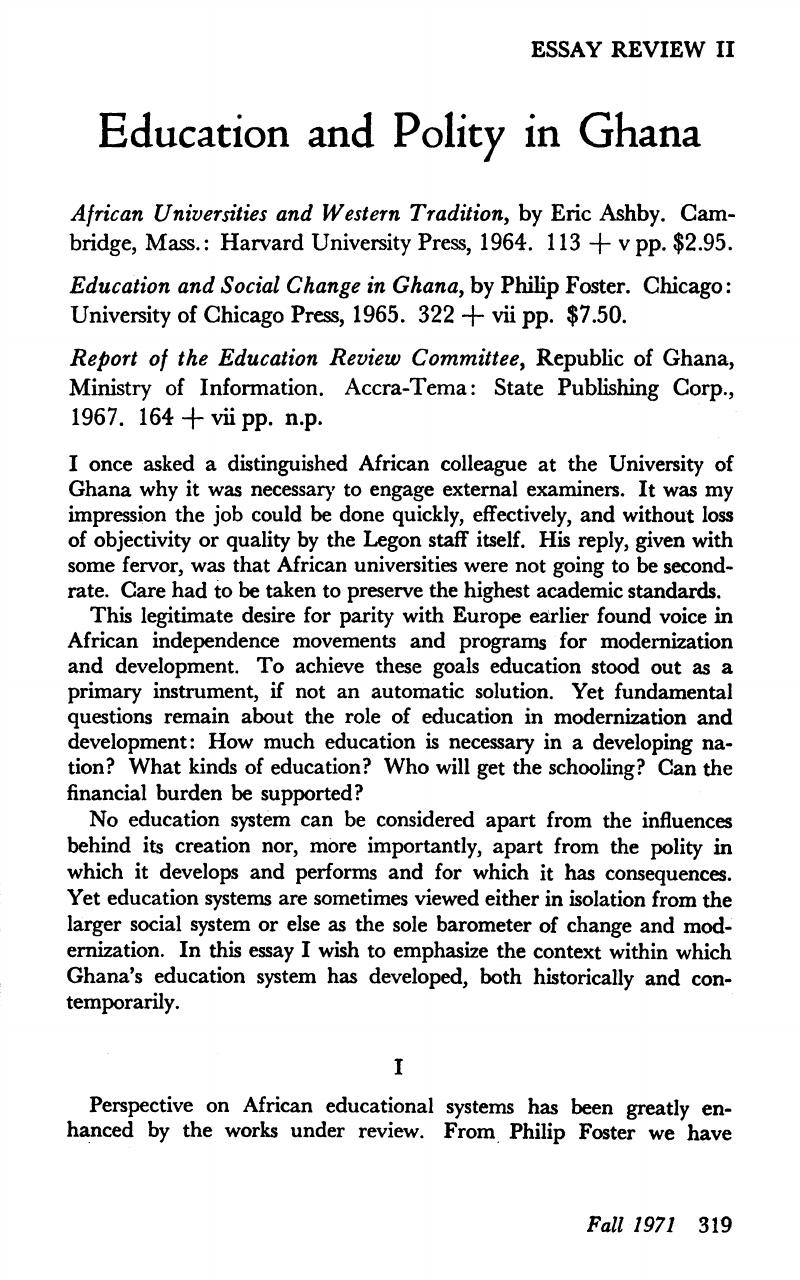No CrossRef data available.
Published online by Cambridge University Press: 24 February 2017

1. Foster, Philip, Education and Social Change in Ghana (Chicago: University of Chicago Press, 1965), p. vii.Google Scholar
2. Ibid., p. 25.Google Scholar
3. Ibid., p. 128.Google Scholar
4. Ibid., p. 151.Google Scholar
5. Ashby, Eric, with Anderson, Mary, Universities: British, Indian, African: A Study in the Ecology of Higher Education (Cambridge, Mass.: Harvard University Press, 1966).Google Scholar
6. Ashby, Eric, African Universities and Western Tradition (Cambridge, Mass.: Harvard University Press, 1964), p. 36.Google Scholar
7. Ibid., p. 19.Google Scholar
8. Kwapong, A. A., “Vice-Chancellor's Address to Congregation, 26th March, 1966,” Legonite 3, No. 2 (Lent, 1966): 11–12.Google Scholar
9. Mapp, Roberta and Finlay, David, “Ghana's Status System: Reflections on University and Society,” (unpublished manuscript, University of Oregon, 1970).Google Scholar
10. Republic of Ghana, Ministry of Information, Report of the Education Review Committee (Accra-Tema: State Publishing Corp., 1967), p. 3.Google Scholar
11. Ibid., p. 4.Google Scholar
12. Coleman, James S., “Introduction,” in Education and Political Development, ed. Coleman, James S. (Princeton: Princeton University Press, 1965), p. 31.Google Scholar
13. Ashby, African Universities, p. 103.Google Scholar
14. Republic of Ghana, Ministry of Information, Report, p. 137.Google Scholar
15. Republic of Ghana, Ministry of Information, White Paper on the Report of the Education Review Committee (Accra-Tema, 1968), p. 11.Google Scholar
16. McNamara, Robert S., Address to the Board of Governors: International Bank for Reconstruction and Development (Copenhagen, 1970), pp. 5–6.Google Scholar
17. Republic of Ghana, Central Bureau of Statistics, Economic Survey, 1967 (Accra-Tema, 1968), p. 100.Google Scholar